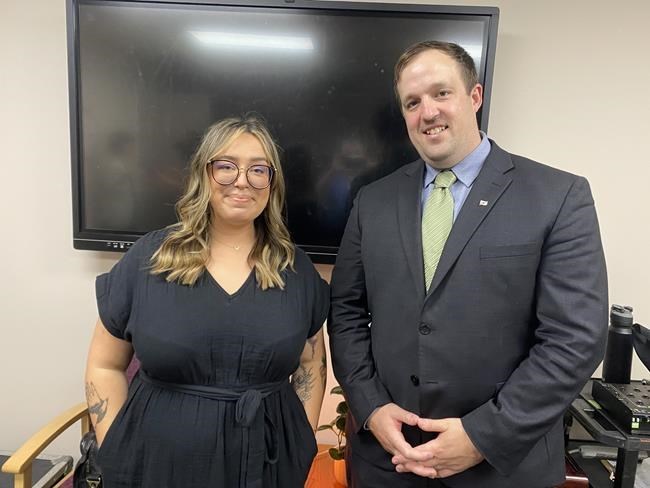HALIFAX — Nova Scotia is committing $2.8 million a year over five years to help a Halifax-based sexual assault centre increase access to its trauma services for survivors of sexual assault.
The money will fund a new provincewide program operated by the Avalon Sexual Assault Centre and will also be used to hire 13 more sexual violence trauma therapists by March of next year.
Sarah Rodimon, Avalon’s executive director, said the new therapists will work across the province, although it hasn’t been determined exactly where they will be based.
“We will likely be seeing them in places like community-based organizations that serve our most marginalized communities and at women’s centres across the province,” Rodimon said in an interview Wednesday.
The new hires will more than double the number of trauma therapists in the province to 24 from 11, and four of those spots will be designated for African Nova Scotians and Indigenous health-care workers.
“It means more clients receiving more care in their communities — and sooner,” Rodimon said, adding that quicker access will be key in getting survivors of violence the help they need.
“Survivors need support when they need it, not tomorrow, not next week, month or next year, but as soon as possible,” Rodimon said. “This will help us serve them within the context of their lives when they need it most.”
Among the areas with limited services are rural, Indigenous and African Nova Scotian communities. Kristina Fifield, a trauma therapist at Avalon, said the lack of access is most acute in rural communities.
“We cannot expect individuals to get to services if they are an hour or an hour and a half away or even longer," Fifield said. “How is that accessible?”
She added that support services have not been culturally responsive to minority and Indigenous communities and that the program will support professional development in order to help improve the assistance provided to those victims of violence.
This report by The Canadian Press was first published July 27, 2022.
Keith Doucette, The Canadian Press




